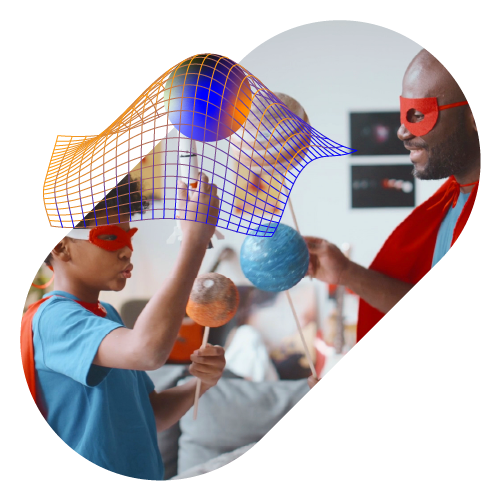The pharmaceutical industry finds itself at a pivotal intersection of technology, patient expectations, and creative innovation. The year 2025 demands more from pharma marketers than just staying relevant – it requires transformation. To remain competitive, forward-thinking companies must look beyond conventional approaches and adopt strategies that blend cutting-edge technology, patient-centricity, and personalised experiences.
This article explores the innovative strategies shaping the future of pharma marketing in 2025. From leveraging artificial intelligence to creating hyper-targeted campaigns, these approaches provide a roadmap for success.
1. Harnessing the Potential of Artificial Intelligence (AI)
Artificial intelligence is no longer a futuristic notion – it’s a driving force behind pharma marketing strategies. In 2025, the key lies in how effectively you leverage AI to meet your target audience’s needs.
AI for Hyper-Personalisation
AI enables pharmaceutical brands to personalise messaging in unprecedented ways. By analysing data such as physician prescribing habits and patient behaviour, AI delivers tailored messages that resonate on a deeper level.
For example, imagine a healthcare professional (HCP) platform powered by AI that curates educational content and clinical studies based on a doctor’s speciality, geographic location, and online interactions. This not only saves time for HCPs but also ensures they receive information that’s both relevant and actionable.
Predictive Modelling for Campaign Success
AI doesn’t just personalise – it predicts. By analysing past campaigns, current market data, and emerging trends, predictive AI helps marketers anticipate the success or challenges of specific initiatives. This allows for proactive adjustments to maximise campaign impact.
Pharma companies like Novartis have leveraged predictive analytics for drug launch strategies, identifying the optimal timing and audience for new treatments.
Chatbots and Virtual Assistants
AI-powered chatbots are transforming patient and HCP communication. These virtual assistants can answer questions in real time, provide symptom-checker tools, or guide patients through treatment adherence programs.
Take Eli Lilly’s chatbot program, which offers 24/7 assistance to diabetes patients. It’s a prime example of how AI can nurture trust and empower patients by addressing concerns promptly.
Key Insight
AI isn’t just a tool – it’s the catalyst for smarter, faster, and more personalised marketing strategies.
2. Digital Transformation and Omnichannel Marketing
The days of relying solely on traditional marketing channels are long gone. Digital transformation has unlocked the potential for omnichannel marketing, offering pharma marketers the ability to reach their audience seamlessly across multiple touchpoints.
Integrating Digital Platforms
With the rise of telemedicine, online HCP portals, and digital conferences, pharma companies are expanding their reach. These platforms offer fertile ground for delivering educational content, interactive tools, and marketing campaigns in real-time.
For instance, Pfizer launched virtual symposia during the pandemic to engage with HCPs globally. These online events combined live discussions with on-demand resources, delivering value in an accessible format.
Connected Data for a Unified Experience
By integrating data across platforms, pharma marketers can create cohesive campaigns that track a user’s engagement at every touchpoint. Whether it’s email, in-app notifications, or social media, omnichannel strategies ensure every piece of communication aligns with the broader narrative.
Dynamic Content Personalisation
Digital-first strategies allow you to serve personalised content that evolves in response to audience behaviour. If an HCP shows interest in oncology treatments, targeted follow-up emails can offer in-depth case studies or invite participation in oncology-related webinars.
Tip for 2025
Invest in digital-first infrastructure and train teams to master the art of omnichannel storytelling.
3. Patient-Centric Campaigns as the Cornerstone of Success
Patient expectations are higher than ever, and marketers ignoring this risk losing credibility. Patient-centric campaigns put individuals – not products – at the heart of messaging, fostering trust and ethical storytelling.
Empathy-Led Communication
Patient-centric marketing replaces technical jargon with approachable, empathetic messaging. Successful campaigns go beyond explaining conditions or treatments – they connect emotionally.
For example, Roche’s breast cancer awareness campaigns feature heartfelt storytelling, shifting the focus from statistics to survivor journeys. Such initiatives show patients they’re seen, heard, and understood.
Health Literacy Initiatives
Some patients struggle to grasp complex medical concepts. Effective campaigns include plain-language explanations and visual aids, ensuring content is inclusive and digestible.
Patient Communities and Co-Creation
Empower your audience by giving them a voice. Facilitating patient communities where individuals share stories or participate in content co-creation enriches your campaign’s authenticity.
Key Takeaway
Empathy fuels engagement. Listen, understand, and adapt your messaging to align with patient perspectives.
4. Personalised Marketing Powered by Data
Personalisation isn’t new, but the advancements in data analytics and AI have taken it from segmentation to true one-to-one marketing.
Micro-Segmentation with Big Data
Data sources such as electronic health records (EHRs), wearable health trackers, and online behaviours allow for micro-segmentation – dividing audiences into granular groups based on specific traits.
For instance, a cardiovascular drug might be marketed differently to HCPs managing high-risk obese patients versus those treating elderly individuals with controlled hypertension.
Focus on Real-World Evidence (RWE)
Data-driven storytelling using real-world evidence is another powerful tactic. Providing insights from actual patient outcomes builds HCP trust while strengthening your brand’s credibility.
Geo-Targeting and Localised Campaigns
Some healthcare needs are geographically specific. With analytics tools, marketers can identify regions where their messaging can make the most impact, ensuring resources are allocated effectively.
Pro Tip
Combine data-driven strategies with creative storytelling for campaigns that are both impactful and relatable.
5. Innovative Content Formats to Strengthen Engagement
Variety and innovation in content formats are essential to keep your audience engaged in 2025. Static adverts are being replaced with dynamic, interactive, and multimedia-rich experiences.
Augmented Reality (AR) and Virtual Reality (VR)
Immersive technologies such as AR and VR are becoming indispensable tools for pharma marketing. They allow HCPs to visualise drug mechanisms, interact with 3D anatomical models, or simulate patient cases.
Interactive Video Content
Videos dominate digital engagement, but interactive video takes it further. Imagine a video campaign offering HCPs the option to explore different pathways based on their decisions, leading to a personalised experience.
Podcast Series and Webinars
Pharma companies are now educating HCPs with in-depth podcasts featuring expert interviews, treatment guidelines, and case discussions. These formats allow for multi-tasking and convenient consumption, appealing to busy professionals.
AI-Powered Infographics
Static charts are becoming a thing of the past. AI can tailor infographics to suit the interests of individual doctors, providing exactly the insights they find most relevant.
Key Strategy
Experiment with emerging formats that promise not just information sharing but real engagement.
Final Thoughts
Pharma marketing in 2025 requires bold thinking and a commitment to innovation. AI, digital tools, patient-centric approaches, and personalised strategies are not just trends – they’re imperatives. By understanding and addressing the evolving needs of patients and HCPs with clear, empathetic communication, pharma marketers can achieve impactful results while strengthening trust and loyalty.
Don’t just adapt to the future; shape it. Innovative strategies are your key to unlocking untapped opportunities and redefining success in a rapidly changing landscape.
Are you ready to lead in 2025? The tools are here – it’s time to use them.
Enjoy the read? Well, we thought we’d introduce you to who’s behind it all.
At the end of the day, science isn’t just about research and results – it’s about people. It’s about how discoveries impact lives, how knowledge empowers action, and how communication builds trust. At Verve, a health communications agency, we believe that science should be told in a way that feels engaging, accessible, and deeply human.
That’s why we focus on Science, humanised – an approach that goes beyond simplifying complex information. We bring clarity and emotion together, ensuring that scientific communication doesn’t just educate but resonates. Because when science speaks to people, it doesn’t just inform…it inspires.
Every discovery has a story. Whether it’s the latest healthcare breakthrough, a transformative piece of research, or an innovative new treatment, our mission is to ensure that science is heard, understood, and remembered. We take the precision of data and the power of storytelling and bring them together to create impact.
Because science should be more than just understood – it should be felt.



